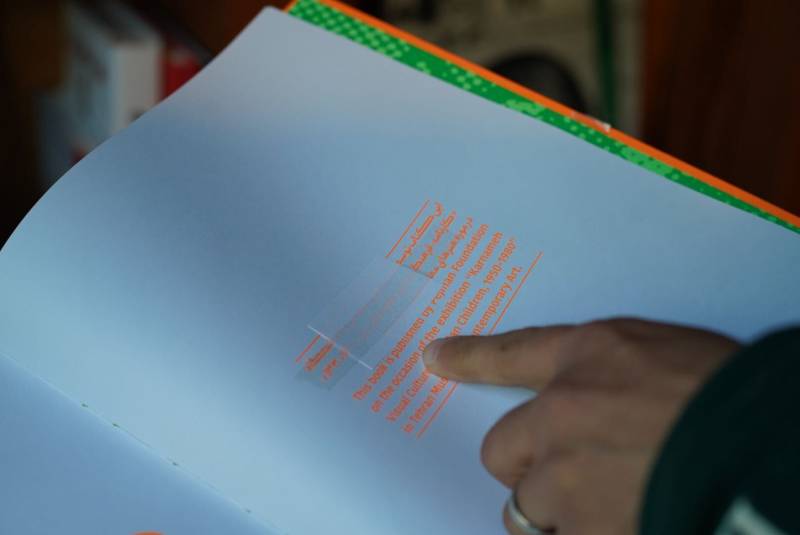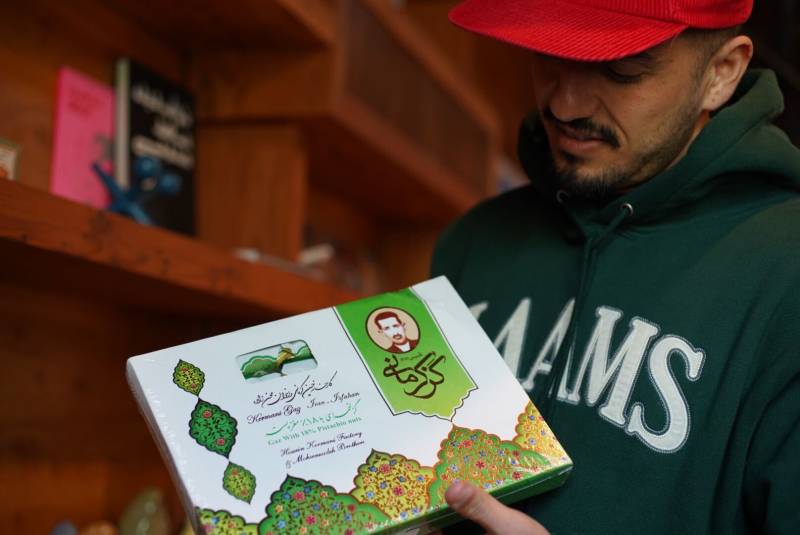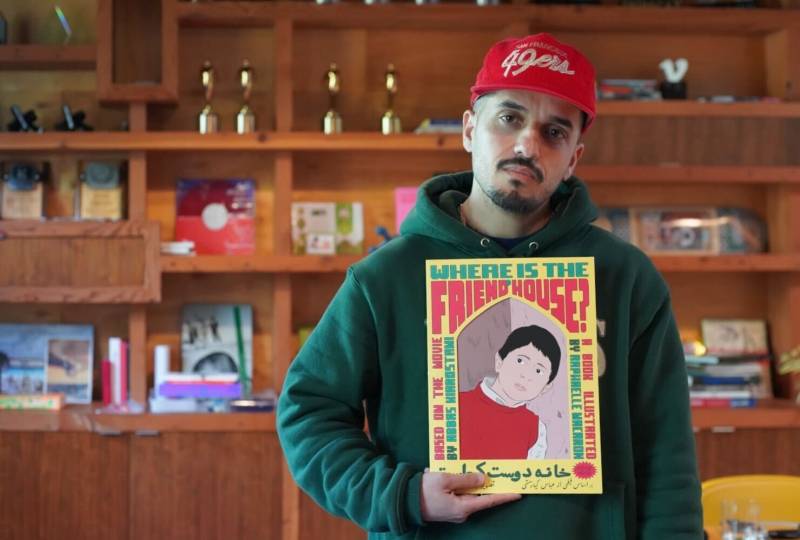Inside of Mohammad Gorjestani’s office, there’s hella artwork. The filmmaker and co-founder of Even/Odd Studios has painted collages of wrestlers from Iran mounted near photographed images of Bay Area sideshows. There’s stories embroidered on skateboard decks, family heirlooms in the form of pottery and even a tiny replica IranAir airplane.

Books written in Farsi line the walls, and Persian carpets on the floor require you to change out of your footwear and into slippers, as is the custom in Iran.
Gorjestani was raised on the west side of San Jose and has lived in San Francisco for two decades, but his heart remains tied to the place he was born, Tehran, Iran.
He has childhood memories from his homeland, the last of which are from when he and his family left the country during the Iran-Iraq War. He hasn’t visited home since moving to the United States, but he has never been severed from the culture. As he soaked up all of the game the Bay Area offers, he simultaneously held true to his roots. At the same time, he grew critical of the United States; now he uses his art to question the forces that cause oppression here and abroad.

Gorjestani’s work spans from an art installation honoring the victims of police brutality to films highlighting the impacts of post-traumatic stress on former soldiers. His production company recently teamed up with the Kiarostami Foundation, an organization named after the late Iranian filmmaker Abbas Kiarostami, to produce a children’s book inspired by Kiarostami’s film, Where Is the Friend’s House?
Gorjestani says that if given the chance, he’d write a letter to a version of himself that never left Iran. And in some ways, his work is the embodiment of that letter.
Below are lightly edited excerpts from my conversation with Mohammad Gorjestani
HARSHAW: I see one of the pieces of art on your wall is a print of a wrestler. This piece, the skateboard, the sculptures. Why is it important to have these aspects of culture here?
GORJESTANI: I wasn’t part of the wave of Iranians who left during the revolution. My family, my parents, we stayed. We’re more part of an unknown part of Iranian history, the Iran-Iraq war, and that was an eight year war. My parents stuck through all eight years.
As I’ve gotten older, I’ve just realized how much I have an affinity to not just my culture, but to trying to understand who I am and where I come from. So for me, having this space is a little bit of a reclaiming of your identity, a reclaiming of your culture.
HARSHAW: What’s your mission statement as a filmmaker?
GORJESTANI: I’m trying to basically create these artifacts that when they’re left behind, someone can understand what it was like for a kid who grew up in Tehran, who has the memories I do from that war. Man, I didn’t have a bad childhood, but there was struggle with it.
And as you get older, you understand that you’re existing in this system and this system that’s here, that’s oppressing the people you love and the culture you love and things you love, was the same thing that caused you to leave where you’re from. And then you have to think about all the things that are still affecting your ability to be a free person in the world. I’m trying to take that experience and put it through a filter that is as real to who I am as possible.
HARSHAW: I’m wondering if you were to write a letter home, what would be the contents of that letter?
GORJESTANI: The thing that occupies my mind the most, when I think about my identity, which is like, who would Mohammad have been if he never left Iran? So I would probably write the letter to that person. Even though maybe that kid wishes that he might have experienced America and lived in the Bay Area and grown up like me, that this version of him also wishes that he never left.
Whether it’s your identity, whether it’s your convictions. You’re going to have to give something up. There is a transaction and what we know about America is how much of its economic mobility, how much of its foreign policy has been at the expense of people of color.
That’s the thing I struggle with the most is like, I still don’t know if it was the right thing to do to leave. The only way I can make it the right decision is if I’m able to express that experience in a way, artistically, that allows me to feel closure around it.

Rightnowish is an arts and culture podcast produced at KQED. Listen to it wherever you get your podcasts or click the play button at the top of this page and subscribe to the show on NPR One, Spotify, Apple Podcasts, TuneIn, Stitcher or wherever you get your podcasts.


